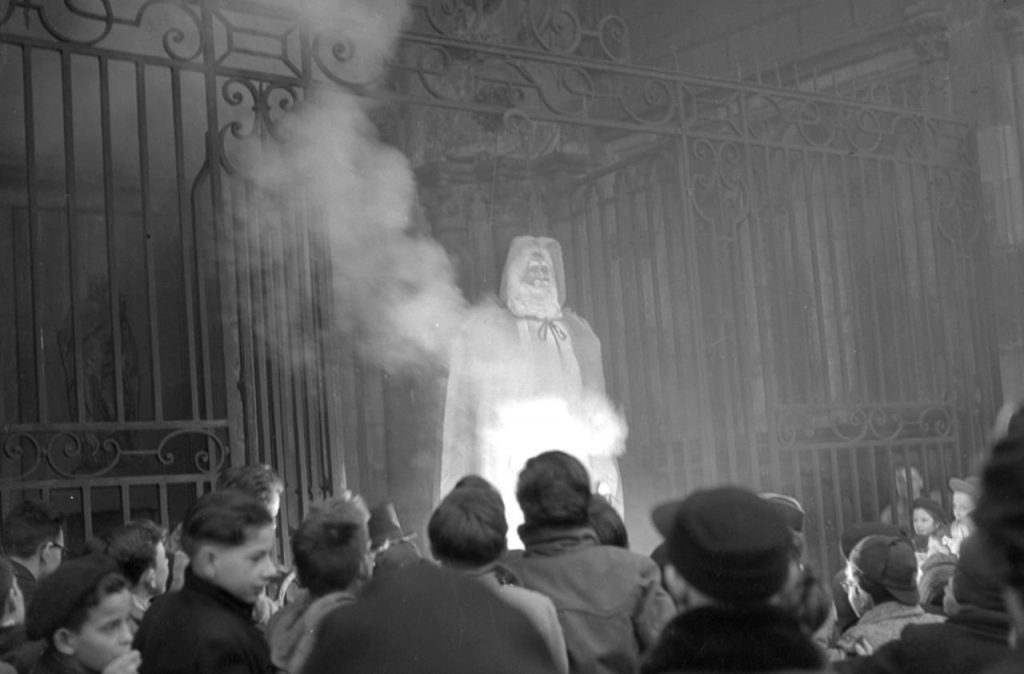Why Christmas comes early this year.

We introduced “theme weeks” this year, to have some over-arching structure on classes that otherwise can become pretty splintered as the age difference in the group is so big. It’s nice to work on something together.
It quickly transpired that this age group needs much more than five days for a given subject, so the “week” in “theme week” quickly oozes out into a month.
I feel our “Ancient Egypt” theme went pretty well. “Ancient Greece” was arguably less focused because there were so many other things going on. At the end of the “Halloween theme”, when I asked the kids “why do we celebrate Halloween?” they all said “to commemorate our ancestors”. Not a word about candy. This felt like victory, but maybe they were just being nice.
We are starting our Christmas theme insanely early this year, because we seriously need to do some more drama. For one thing, theater is something everybody can contribute in regardless of age, and it is also perfect for practicing languages orally. Theater covers almost all the stuff self-study leaves out in language learning.
But if we’re going to do this well, we need lots of time. Putting up a play has to be guided by teachers, it just doesn’t work as a student-driven project. At least not yet.
Christmas also fits seamlessly in the historical timeline we’ve been working on this year, as the Nativity plays itself out in the Roman Empire. And then there’s the old Norse traditions around winter solstice, too. “Christmas theme” can be a veritable Trojan horse for lots of stuff.
Just so there’ll be no misunderstandings here: There will be some amount of scripture these weeks because the historical aspect of Christmas becomes unintelligible without a degree of background knowledge. What to believe or not to believe is the parents’ business.